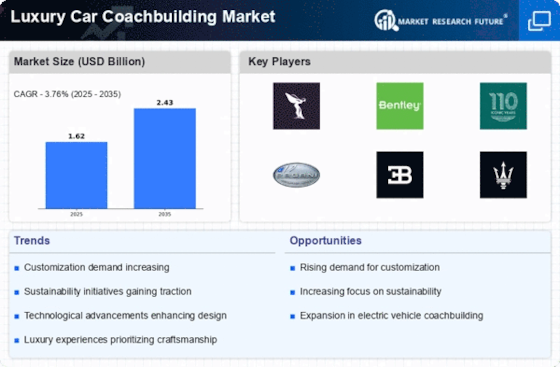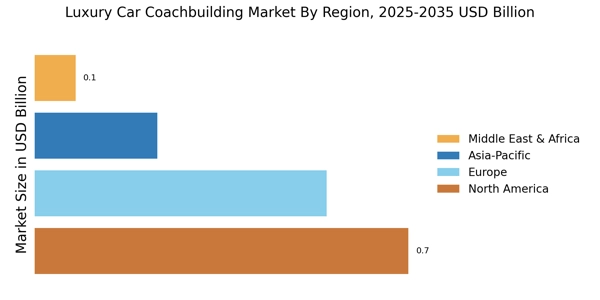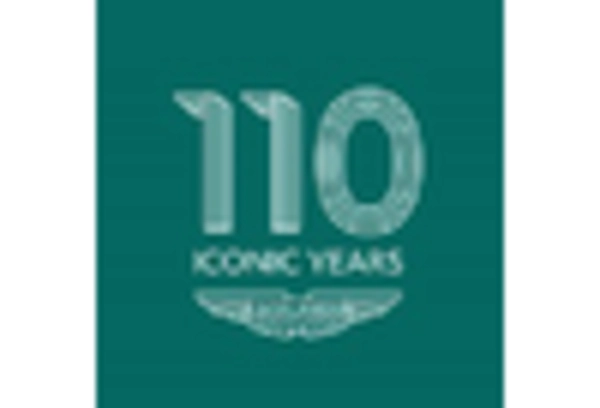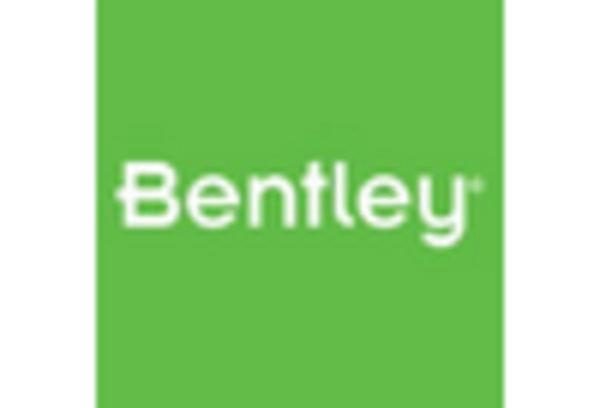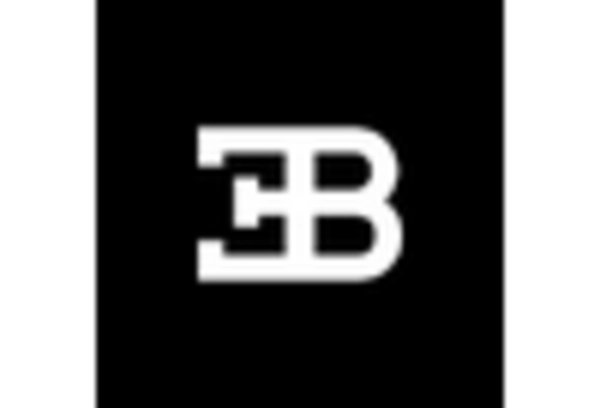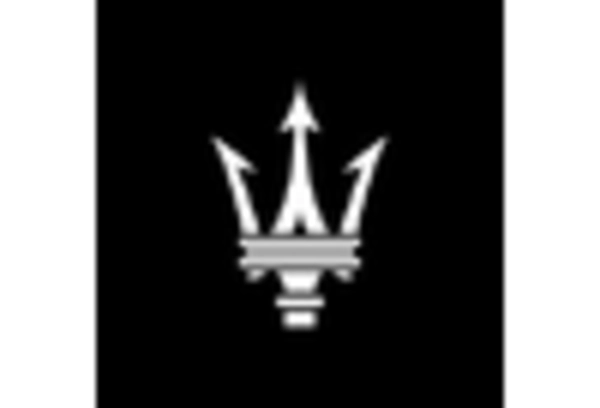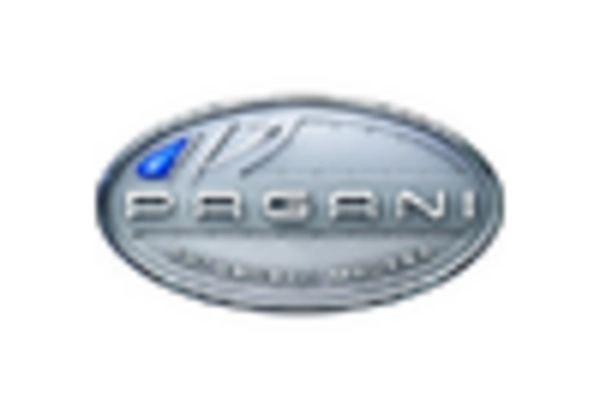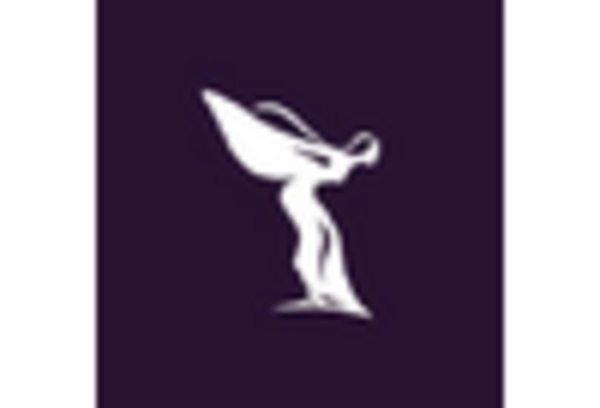Influence of Luxury Lifestyle Trends
The Luxury Car Coachbuilding Market is significantly influenced by prevailing luxury lifestyle trends, which encompass a broader spectrum of consumer preferences and behaviors. As luxury lifestyles evolve, there is a growing inclination towards experiences that reflect status and exclusivity. This trend is evident in the increasing popularity of luxury events, high-end travel, and bespoke services, which create a demand for vehicles that complement these lifestyles. Coachbuilders are capitalizing on this trend by offering limited-edition models and exclusive collaborations with renowned designers, further enhancing the allure of luxury cars. Additionally, the rise of social media has amplified the visibility of luxury vehicles, driving consumer interest and aspiration. As a result, the Luxury Car Coachbuilding Market is poised to thrive, as it aligns with the desires of consumers who seek to embody a luxurious lifestyle through their automotive choices.
Cultural Shifts Towards Individuality
Cultural shifts towards individuality and self-expression are significantly influencing the Luxury Car Coachbuilding Market. As consumers increasingly seek to differentiate themselves from the mainstream, the demand for personalized and unique vehicles is on the rise. This trend is particularly pronounced among younger affluent buyers who prioritize authenticity and personal branding. Coachbuilders are responding by offering extensive customization options, allowing clients to tailor every aspect of their vehicles, from exterior finishes to interior materials. This emphasis on individuality not only enhances the customer experience but also fosters brand loyalty, as consumers develop a deeper connection with their uniquely crafted vehicles. The Luxury Car Coachbuilding Market is thus likely to continue evolving in response to these cultural dynamics, with an increasing focus on bespoke solutions that cater to the desires of discerning consumers.
Growing Demand for Sustainable Luxury
Sustainability is emerging as a critical driver within the Luxury Car Coachbuilding Market, as consumers become more environmentally conscious. The demand for eco-friendly materials and production processes is reshaping the landscape of luxury automotive manufacturing. Many coachbuilders are now focusing on sustainable practices, such as using recycled materials and implementing energy-efficient production methods. This shift is not only appealing to environmentally aware consumers but also aligns with broader industry trends towards sustainability. Reports indicate that a significant percentage of luxury car buyers are willing to pay a premium for vehicles that demonstrate a commitment to sustainability. Consequently, the Luxury Car Coachbuilding Market is likely to see an increase in offerings that prioritize eco-friendly designs, catering to a growing segment of consumers who value both luxury and environmental responsibility.
Rising Affluence and Wealth Distribution
The Luxury Car Coachbuilding Market is experiencing a notable surge in demand, driven by the increasing affluence of consumers across various regions. As wealth distribution becomes more pronounced, a growing segment of high-net-worth individuals seeks bespoke automotive solutions that reflect their personal style and status. This trend is evidenced by the rise in luxury vehicle sales, which have shown a compound annual growth rate of approximately 5% over the past few years. The desire for exclusivity and individuality in luxury cars propels the coachbuilding sector, as consumers are willing to invest significantly in tailored designs and features that set their vehicles apart from mass-produced options. Consequently, this driver is likely to continue shaping the Luxury Car Coachbuilding Market, as more affluent consumers enter the market, seeking unique automotive experiences.
Technological Advancements in Manufacturing
Technological innovations are playing a pivotal role in the Luxury Car Coachbuilding Market, enhancing the capabilities of manufacturers to create highly customized vehicles. Advanced manufacturing techniques, such as 3D printing and computer-aided design, allow for greater precision and creativity in the coachbuilding process. These technologies enable manufacturers to produce intricate designs and complex components that were previously unattainable. Furthermore, the integration of smart technologies into luxury vehicles is becoming increasingly prevalent, with features such as autonomous driving and advanced infotainment systems. This technological evolution not only improves the overall quality of luxury cars but also aligns with consumer expectations for cutting-edge features. As a result, the Luxury Car Coachbuilding Market is likely to benefit from ongoing advancements, attracting consumers who desire both luxury and innovation in their automotive choices.


